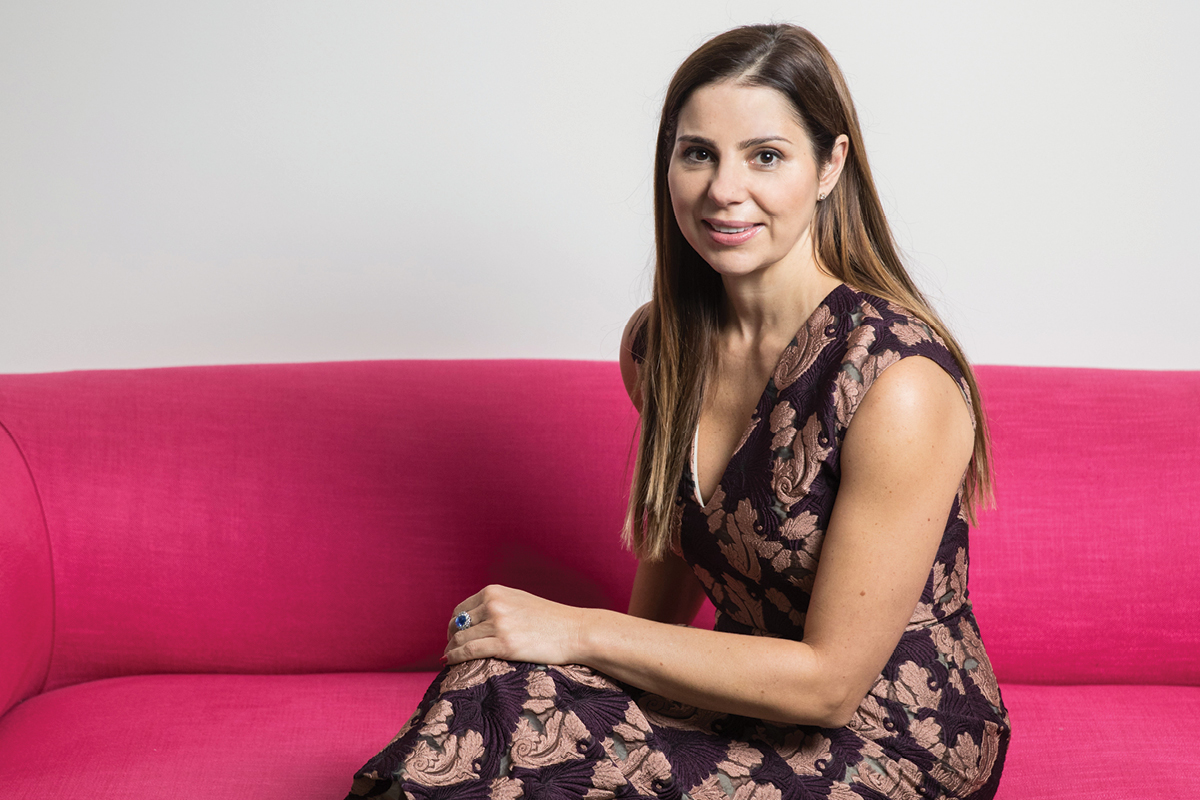Debbie Wosskow had her first taste of running a business while still at school. It was the 80s and the entrepreneurial young Debbie was making a fast buck selling hair scrunchies. She even won a Young Enterprise Award.
That entrepreneurial spirit continued and Debbie launched her first company when she was 25 – a marketing consultancy, Mantra, which she sold to Loewy Group in 2009. “I come from a family of female entrepreneurs,” she says, adding that both her grandmother and her mother owned their own businesses. “It’s much easier to be what you see.”
Today, she runs the world’s largest home-swapping company, Love Home Swap, a business she founded in 2011 after drawing inspiration from the Hollywood movie The Holiday. It was launched in the early days of the sharing economy, something which Debbie points out provides wonderful, flexible working opportunities. Indeed, the very nature of work and business has changed. “What even is work? Airbnb-ing your home?” Debbie posits. “The development of the sharing economy has totally changed the way we live and work. People are now able to choose access over ownership.

“What excites me is the scale. PwC released research stating that the UK’s top-five sharing economies are set to reap £140 billion in transactions by 2025 – a huge number for an emerging industry.”
Debbie is enthusiastic about the sharing economy and supporting female entrepreneurship, both of which work easily together. This year, she co-founded AllBright, an exciting and unique funding and support platform for female-led businesses.
According to Debbie, from 2010 to 2015 just 10% of VC funding went to companies with a female founder. “There is a major funding gap between female-led and male-led businesses,” she says. “The picture got worse last year: only 2.19% of VC money went to female founders. That’s got to change.
“AllBright and launching a funding platform for female founders is hugely important to me. The model funds female businesses, it provides support and accelerates entrepreneurs via the AllBright Academy program, and it empowers women.”
AllBright not only creates what Debbie calls an ‘ecosystem’ of influential and inspiring female entrepreneurs, “it also creates this tremendous opportunity for investors,” she points out. “But the thing that I am very focused on is that women have a great return, and we can help other female business talent.
It’s a win–win for everyone. For me, launching AllBright has been about working out how to use the skills you have. How do I take those to a broader audience?”
There are many different and complex reasons why women aren’t starting businesses. According to Debbie, in the UK one in 10 women say they want to start their own business but don’t. So what is holding them back? “It boils down to three things. The first is network; women often don’t have the network they need to support them, to help them to scale up, to find talent. The second is skills; women often want to tick every single box before they start. So how do you help them skill up? That’s what the AllBright Academy is about. Then it’s confidence. That’s what we hear over and over again: how do you build an ecosystem of confident women?”
Looking back herself, Debbie admits she probably minded too much what other people thought. “I think that’s a particular challenge for women,” she says. “My advice is to accept that things go wrong every single day; not everyone will like you. Get over it and move on. And also be prepared to let your idea develop and change. Developing is a big thing.”
Another key to success for Debbie, who is also the Chairman of Sharing Economy UK and sits on the Mayor of London’s Business Advisory Board, is maintaining perspective and a healthy work–life balance. “If I’m not doing something cultural one night a week, then I don’t feel like
I’m doing all the things that make me happy. So think about what makes you happy and do it.”
She also touts the importance of getting up early and being “super organised” with a day that is very structured. “Successful leaders don’t chase the day; they tackle it head-on. There’s this misapprehension that killer hours are the key to success, but I think it’s about how you work to maximise every moment.”
On Leadership: It comes down to the 3 Gs
1 GRAFT
You have to work really hard; there’s no stepladder to the top. Outstanding leaders, both young and old, work hard, they’re motivated, and they never stop learning.
2 GRACE
It’s about being gracious and being generous with your time.
3 GRIT
This is the most important characteristic; it makes the difference between those who succeed and those who don’t. It’s your ability to keep going. One of the best quotes I’ve heard is that behind every overnight success story there’s 10 years of a founder chewing
on grass, wanting to give up but not.





